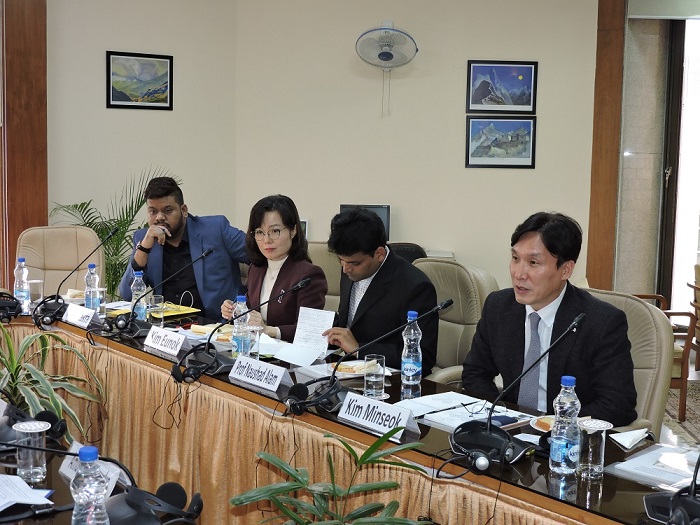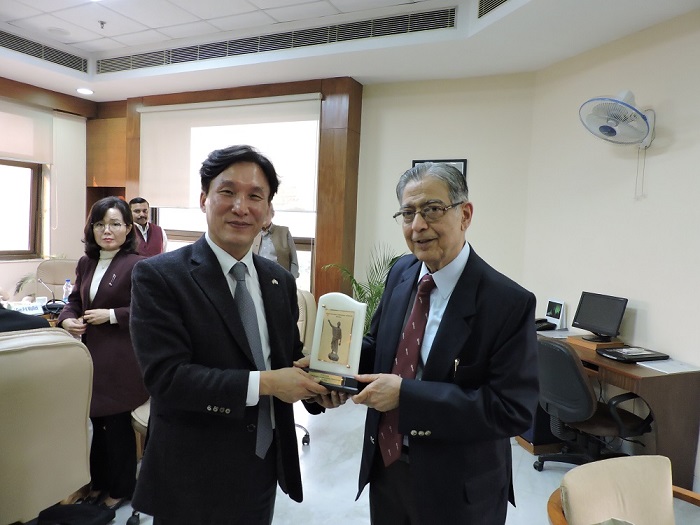The Vivekananda International Foundation (VIF) hosted an interaction with a senior delegation from the Institute of Democracy, South Korea, on November 22, 2018. The delegation was led by the director, Mr. Kim Minseok, who was formerly a member of the National Assembly (for two terms) and the Chairman of Democratic Party in 2015-16. He also held the position of Head Director, Situation Headquarters, Campaign Committee for President-elect Moon Jae-in in 2017.
The welcome remarks were delivered by Ambassador Satish Chandra, Vice Chairman of the VIF. Ambassador Chandra noted the growing dynamism in India-South Korea relations post the July summit this year between their two leaders. While India stated South Korea to be an indispensable partner in its Act East Policy, South Korea specified India as a central pillar of their New Southern Policy. He further elaborated on recent international developments such as the growing uncertainties under the Trump administration, US-China trade war, and the tough path ahead for denuclearization and eventual peace process on the Korean Peninsula.

Mr. Kim Minseok in his remarks talked about (South Korean) President Kim Dae Jung’s memoirs who had recollected his conversations with North Korean Leader Kim Jong Il. While Kim Jong Il was assenting of continued presence of US forces on Korean peninsula (under a new command), he was wary of unification, and had mentioned it would be a long drawn process of more than five to seven decades. Mr. Kim Minseok emphasized that the Koreans were more realistic than international experts would credit them with being, and understood the emerging dynamics after the US-North Korea summit this year. He further mentioned that North Korea, if it felt assured of security, would choose ‘economy’ and follow a path similar to that of China or Vietnam. On the issue of US-China trade war, he noted that while it had impacted the sentimental level, it hadn’t had a practical impact on South Korean economy. He also stated that President Moon Jae-in’s focus on India has been unprecedented in South Korea’s foreign policy that has largely focused on the four major powers - US, China, Russia and Japan. Mr. Kim Minseok emphasized his keenness to expand engagement with Indian think tanks as South Korea lacked experts on India.

Ambassador Skand Tayal in his remarks highlighted the mutual benefits of larger economic engagement between India and South Korea. He emphasized that South Korean companies must shift focus from exports to co-production, and focus on increasing the local value addition in India. He also mentioned that defense industry cooperation could be a critical pillar in the bilateral relationship. The lack of joint military exercises between the two countries was however a major shortcoming despite the bilateral relationship having been elevated to ‘Special Strategic Partnership’. He also noted the possibilities of finding convergence between South Korea’s thrust on increasing non-permanent members and India’s thrust on increasing the permanent membership in the UN Security Council. On the strategic front, he concluded that Asia should remain multipolar and both India and South Korea were supportive of continuous US military presence in the region.



Post new comment